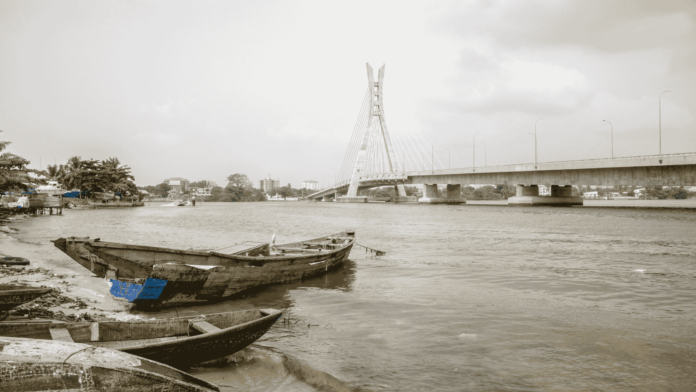Nigeria’s fishing villages are living tapestries of culture, tradition, and resilience. From the tranquil waterways of the Niger Delta to the lively lagoons of Lagos, these communities offer a rare glimpse into the country’s deep-rooted connection to its rivers and seas. Here, life flows with the tide, weaving fishing practices with vibrant traditions that have been passed down through generations. For travelers seeking authentic experiences, these villages provide a window into Nigeria’s coastal and riverine heritage, promising unforgettable stories and rich cultural encounters.
1. Makoko (Lagos State)
Often referred to as the “Venice of Africa,” Makoko is a famous fishing community located on the Lagos Lagoon. This floating village is built on stilts, with narrow canals serving as streets. Visiting Makoko provides an opportunity to witness the daily lives of the residents, who rely heavily on fishing for their livelihood. You can take a guided canoe tour to explore the village, interact with the locals, and learn about their fishing techniques and traditions.
2. Epe (Lagos State)
Epe is another fishing town located just outside Lagos city. Known for its bustling fish market, Epe offers visitors the chance to watch fishermen bring in their daily catch, which includes catfish, tilapia, and prawns. A visit to the fish market is a vibrant experience, as it showcases the traditional bartering culture of the region. Don’t miss the chance to taste freshly grilled fish prepared by local vendors.
3. Badagry (Lagos State)
Badagry is a historic town with a rich cultural heritage, and its fishing villages are an integral part of its identity. Located along the coast, Badagry’s fishing communities offer picturesque views of the Atlantic Ocean and opportunities to see traditional fishing practices up close. After exploring the fishing villages, you can visit other historical sites in Badagry, such as the Slave Museum and Point of No Return.
Explore more: Guide to the Argungu Fishing Festival: What to Expect
4. Nembe (Bayelsa State)
Nembe is a serene fishing village in the Niger Delta region. Surrounded by mangrove forests and waterways, Nembe offers a peaceful escape for nature lovers. The community’s fishermen are known for their skill in catching crabs, shrimp, and other seafood. Visitors can enjoy canoe rides through the mangroves and experience the natural beauty of the area while learning about the ecological significance of the region.
5. Ilaje (Ondo State)
Ilaje is a coastal community in Ondo State renowned for its vibrant fishing culture. The locals are skilled at building traditional wooden boats, which are crucial for their fishing activities. A visit to Ilaje gives you a chance to witness these boat-building techniques, participate in fishing trips, and sample the community’s delicious seafood cuisine.
6. Andoni (Rivers State)
Andoni, located in Rivers State, is a picturesque fishing village surrounded by lush greenery and waterways. This community is known for its artisanal fishing methods and vibrant cultural festivals. Visitors can explore the village by boat, enjoy birdwatching, and learn about the local traditions that revolve around fishing and river life.
7. Opobo (Rivers State)
Opobo is a historic riverine town that blends cultural heritage with a thriving fishing industry. The community is accessible by boat and offers breathtaking views of the waterways. Opobo is also famous for its traditional architecture and cultural festivals, making it an ideal destination for travelers interested in history and local life.
Tips for Visiting Fishing Villages in Nigeria
- Travel with a Guide: Many fishing villages are remote and may require local guides for navigation and language assistance.
- Respect Local Customs: Always seek permission before taking photographs and be mindful of cultural sensitivities.
- Try the Local Cuisine: Many fishing villages offer freshly prepared seafood that showcases the flavors of Nigeria.
- Plan for Eco-Tourism: Support sustainable tourism practices by respecting the environment and contributing to the local economy.




